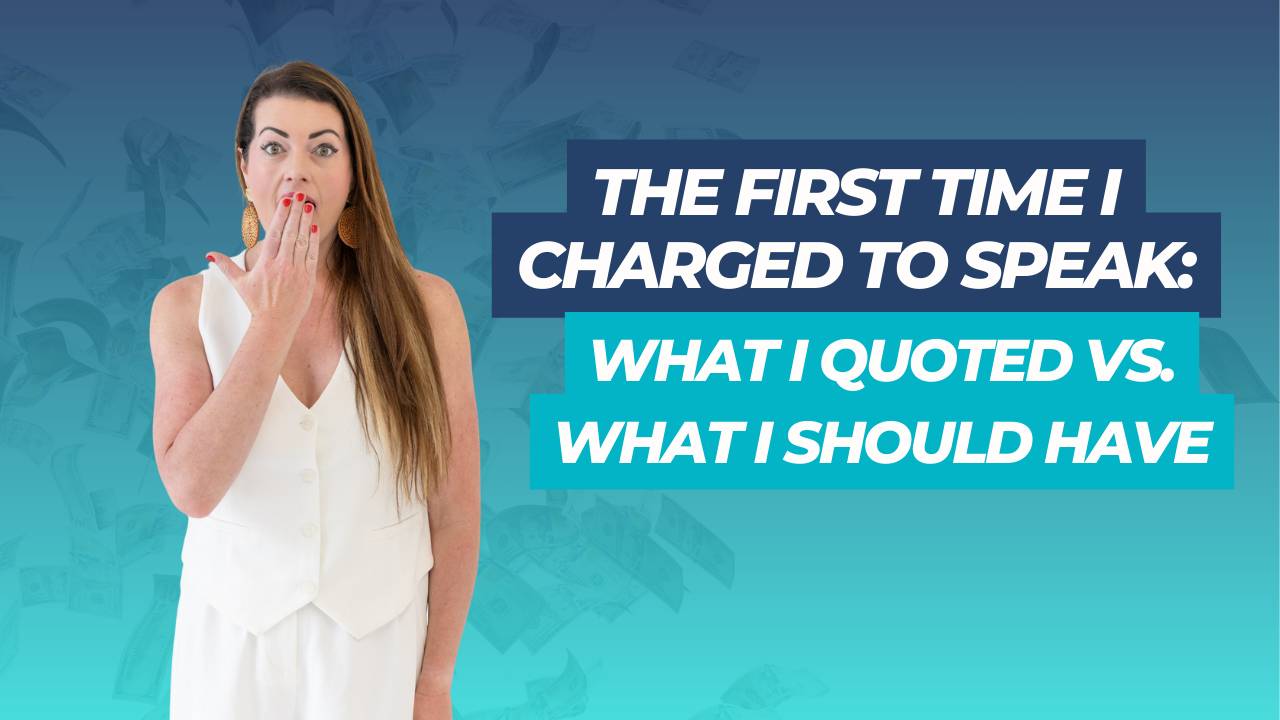The first time I charged to speak: What I quoted vs. what I should have

I’ll never forget the first time someone asked me, “So, what’s your speaking fee?”
I’d been preparing for that moment for months maybe even years. I’d devoured books on public speaking, polished my keynote, and told myself over and over, “You’re ready. You’ve got this.”
But when the email landed in my inbox, my confidence melted like ice on a summer day. I typed back a number I thought was “reasonable.” Not impressive, not bold just… safe.
I quoted $30.
Yes, thirty dollars.
The client accepted in about 10 seconds flat (which, let’s be honest, was my first red flag). At the time, I was thrilled, someone was paying me to speak! I strutted into that gig with a mixture of nerves and excitement, telling myself this was the beginning of my professional speaking journey.
And in a way, it was. But here’s the truth: that $30 wasn’t just a bargain, it was a steal. By the time I factored in my preparation, travel, time away from family, and years of experience behind the microphone, I realised I had basically worked for less than the price of a movie ticket.
That day taught me two big lessons about pricing as a speaker.
1. You’re Not Charging for the Minutes, You’re Charging for the Mastery
A lot of new speakers make the mistake I did—they look at the speech itself and think, “Well, it’s only 30 minutes. How much can I really charge for half an hour?”
But clients aren’t paying for 30 minutes. They’re paying for the decades of knowledge, the hours of rehearsal, the energy you bring to the stage, and the transformation you deliver to their audience.
It’s the same reason you don’t pay a surgeon by the minute. You pay for their skill, their training, and their ability to get results quickly. Speaking is no different.
2. Pricing with Confidence Creates Perception of Value
Here’s the kicker: if you charge too little, people actually value you less. I thought quoting $30 would make me “affordable” and appealing. Instead, it signaled I was inexperienced and not worth much.
When you quote with confidence—even if your voice is shaking a little—the client hears authority. They hear experience. They hear value. And they respect it.
What I Should Have Charged
Looking back, even as a beginner, that talk was worth at least $500–$1,000. Not because I had years of global keynotes under my belt at the time, but because the impact was real. The audience walked away inspired, and the organiser told me later it was one of the most engaging sessions they’d run.
Today, my fees are much higher. But I’ll always look back on that first paid gig as the moment I learned one of the most powerful lessons in business: undervaluing yourself is the fastest way to burn out.
If you’re just starting out and wondering what to charge, here’s my advice: pick a number that feels just a little uncomfortable. That’s usually the sweet spot where you’re honoring your worth without underselling yourself.
Because here’s the truth: if you don’t value your work, no one else will.


